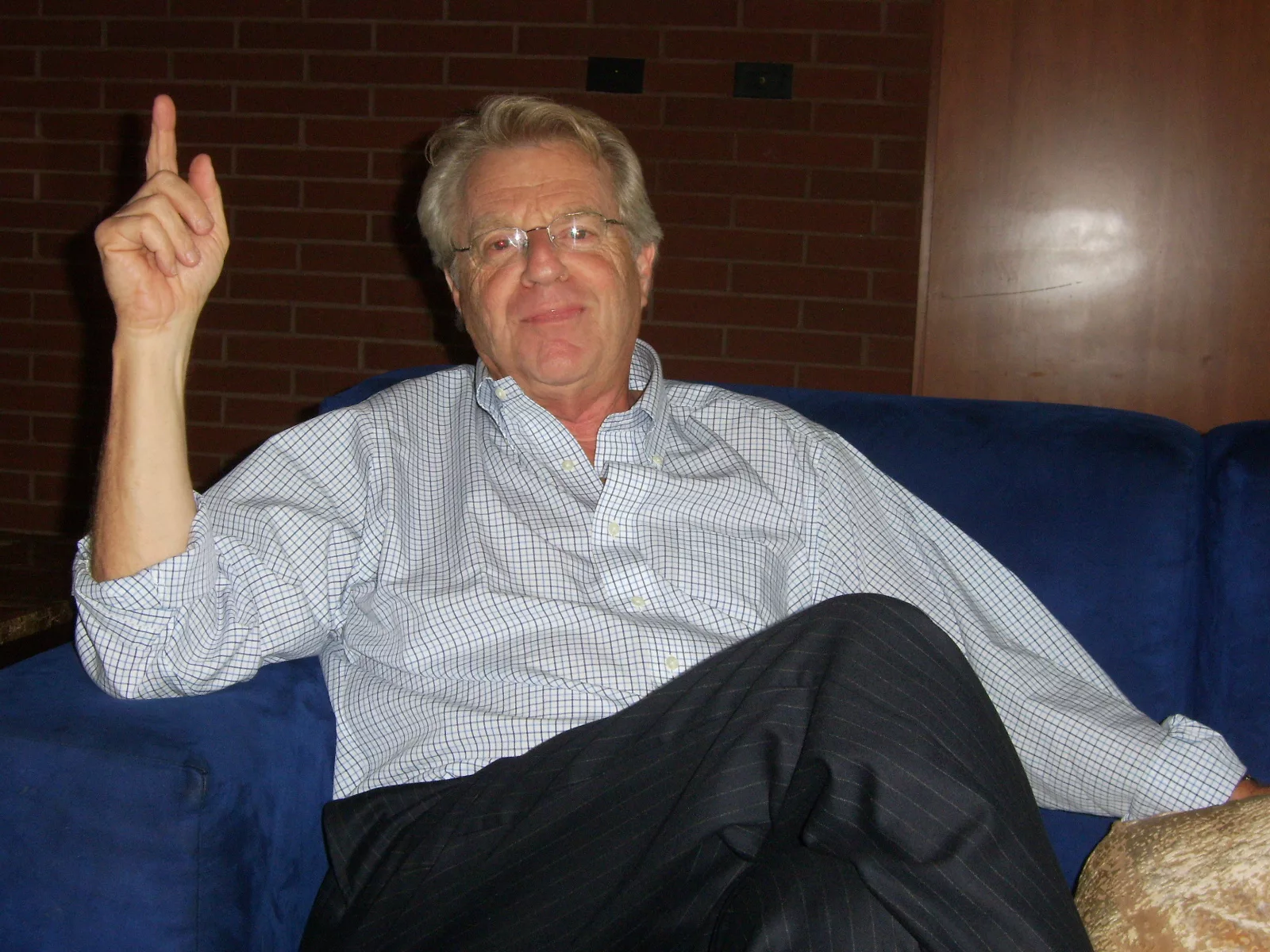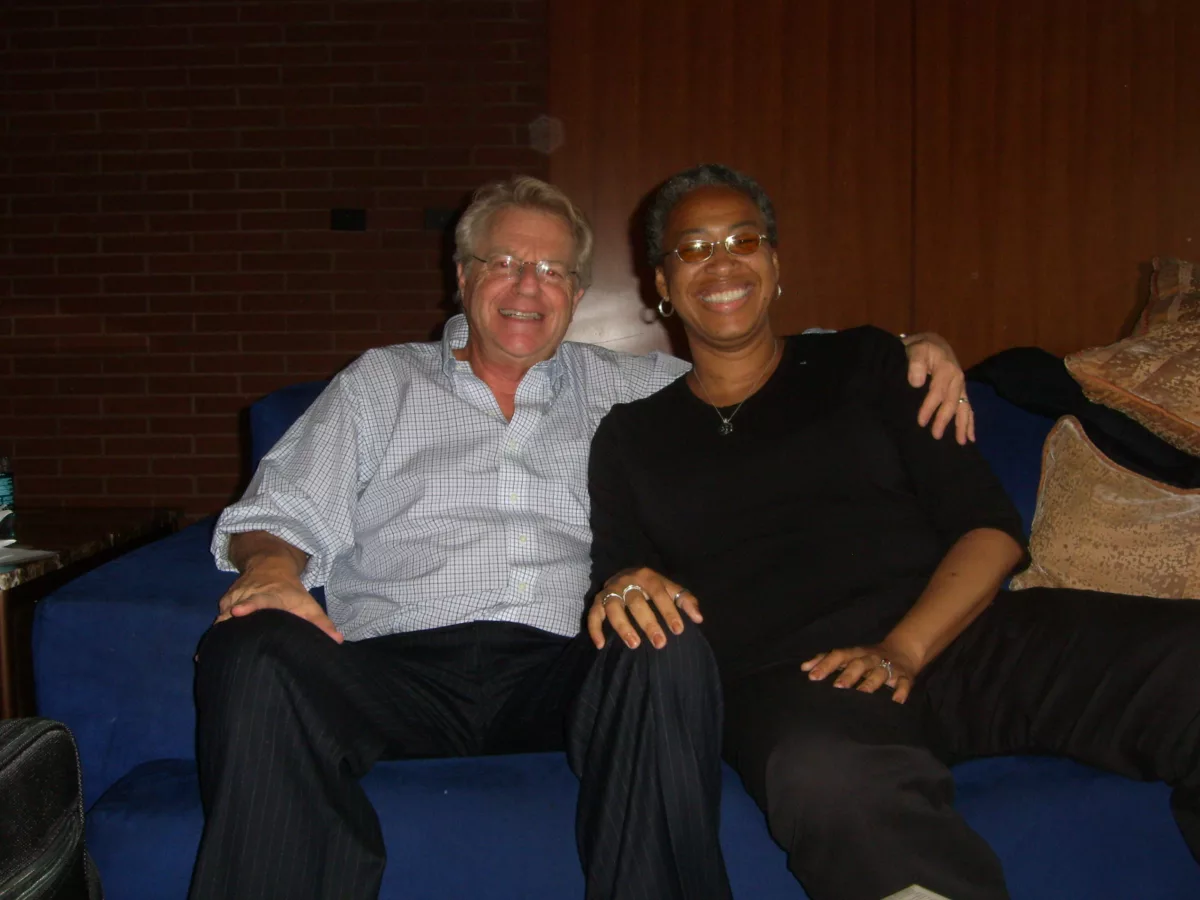
The Jerry Springer story that never was: A reflection on lost opportunities.
Upon learning of the demise of television icon Jerry Springer at the age of 79, my mind instantly traveled back to my fleeting encounter with him. That moment remains vivid in my memory, illustrating the genuine warmth and humor of a man who was often misinterpreted.
As I reflect on the summer of 2009, I can’t help but experience a pang of regret for the lost chance to share my experiences with the legendary Jerry Springer. I was enthusiastic about crafting a perceptive and captivating article about this influential and community-minded figure. Alas, fate had other plans.

In August 2009, we were scheduled to meet mid-afternoon at the Bellevue Stratford, one of Philadelphia’s swankiest hotels. As I approached, I noticed the PR agent nervously checking the time, but Jerry Springer was as cool as a cucumber, exuding an easygoing charm. He was a man thoroughly enjoying life, and next to him lay a 900-page tome he had been engrossed in before standing up to greet me. I apologized for interrupting his reading time, and we shared our first laugh.
Springer’s eponymous talk show became a symbol of low-brow television during its nearly 5,000 episodes, notorious for on-air fights, swearing, and scandalous revelations. Born in the London Underground station of Highgate in 1944, Springer was a product of World War Two. His parents, Jewish refugees from a region that is now part of Poland, were seeking shelter from a German bombing raid at the time.
At the age of four, Jerry Springer, along with his parents and older sister, moved to Queens, New York. He began his professional life in politics, studying political science and law before becoming an advisor to Robert F. Kennedy. After serving as the mayor of Cincinnati from 1977-78, Springer pivoted to a career in TV journalism following an unsuccessful bid for governor of Ohio.
During our interview, I couldn’t help but inquire about the book he was reading. Ten minutes later, we returned to the photo shoot, and I promised to check out the book myself. Social media was still in its infancy, but the images I shared from our meeting elicited awe from many. I asked Springer to strike a pose, and after a few shots, he beckoned me to join him. “I’d be happy to pop a squat with you, Jerry,” I said, prompting a hearty laugh that is forever immortalized in the photos that followed.

That day, I caught a glimpse of the man behind the television persona, a person full of warmth and laughter, which left a lasting impression. Although the story I had pitched was ultimately spiked by the Managing Editor, who felt that featuring Springer would be a detriment to Black people, I couldn’t help but disagree. I knew that we would have sold out of evening editions had we run the piece because, beyond the controversies, there was a genuine, amiable soul who had so graciously shared his time with me.
In retrospect, the decision to suppress my interview with Jerry Springer is a poignant reminder of the delicate balance between editorial discretion and the pursuit of compelling stories. I believe that journalism is about presenting diverse perspectives and stories that resonate with our readers, and I hope that future opportunities to showcase such influential figures will not be lost to editorial bias.
As I look back with a tinge of sadness and a hopeful heart, I will always treasure the memories of the afternoon spent in conversation with a man who was both a cultural icon and a dedicated public servant.
Rest in peace, Jerry Springer.
About Post Author
Discover more from dosage MAGAZINE
Subscribe to get the latest posts sent to your email.

